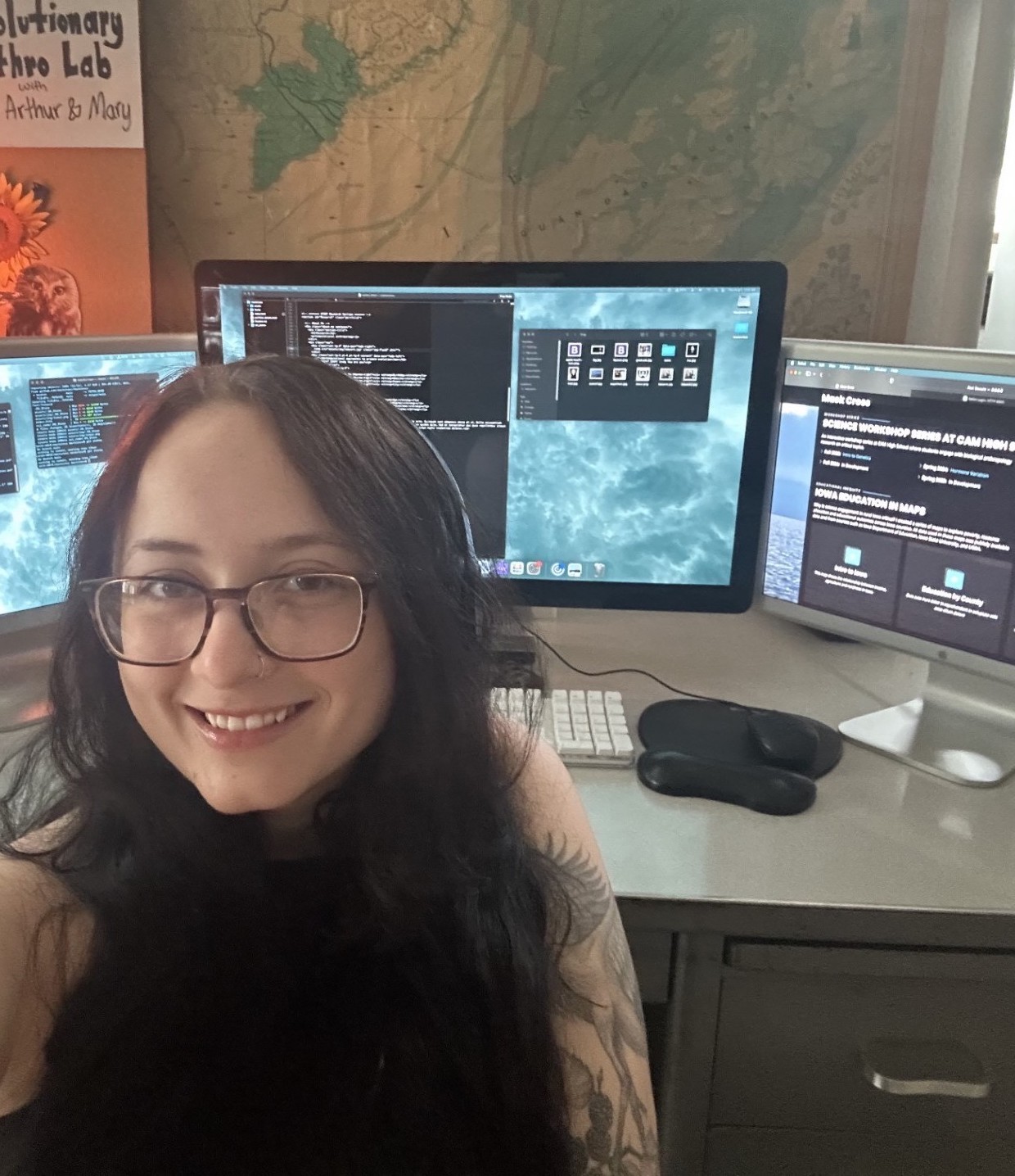About
Learn more about me

A biological anthropologist with a computational bend
I am a PhD student in Biological Anthropology at University of Iowa. I use computational methods to explore macroevolutionary trends across primates with a particular emphasis on the interactions between nervous system evolution, diet and energetics. I'm also committed to science communication and I focus my efforts in rural Iowa where I grew up.
Although I've dedicated my career to the study of primates, I've lived my whole life in awe of nature. I love Iowa prairie, and support efforts for prairie restoration, and I enjoy attempting to identify mushrooms, birds, bugs and plants (with varying degrees of success). I'm constantly trying new things. My dad joke is my favorite hobby is cycling through new hobbies! I enjoy mentorship and learning from my mentees. I've joined efforts to uplift Iowa by volunteering in campaigns for Iowa legislative candidates who prioritize increasing education funding, supporting small farms/businesses, reproductive justice, trans rights and investing in rural spaces.
Personal Interests
My favorite things



